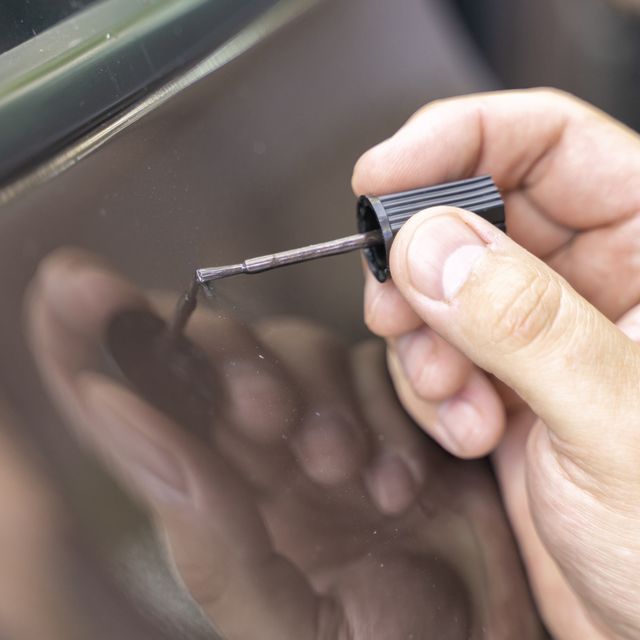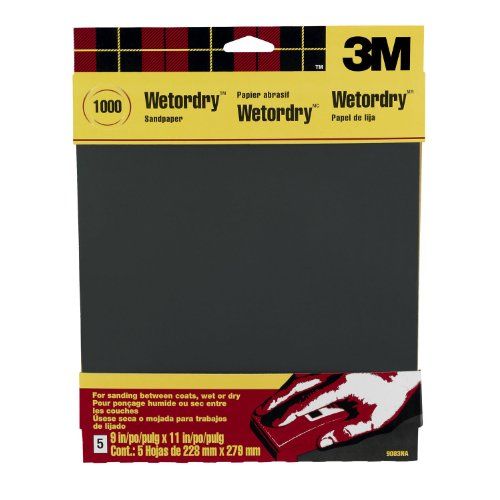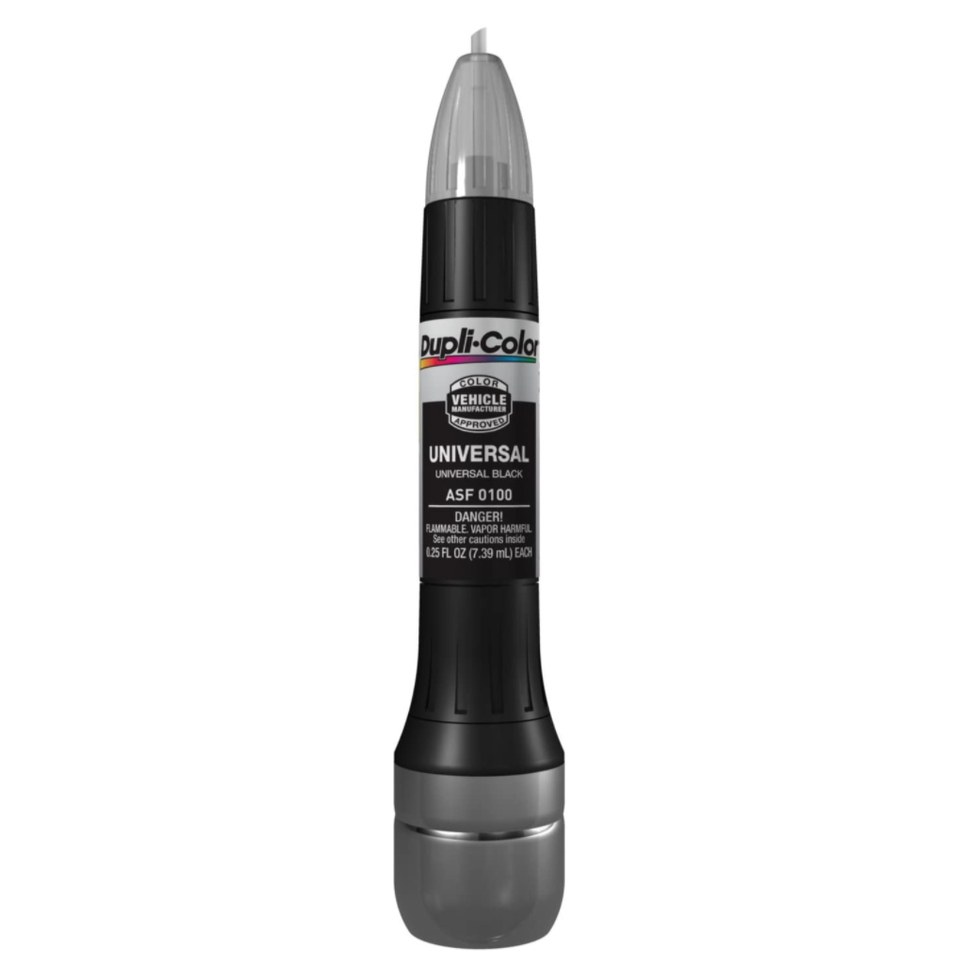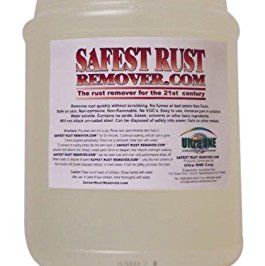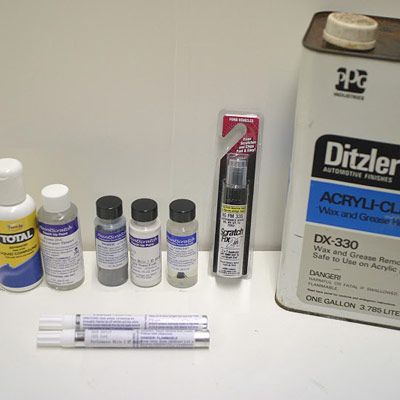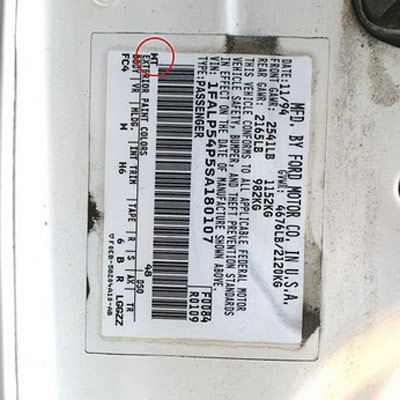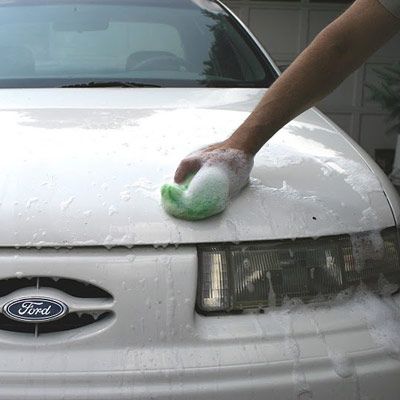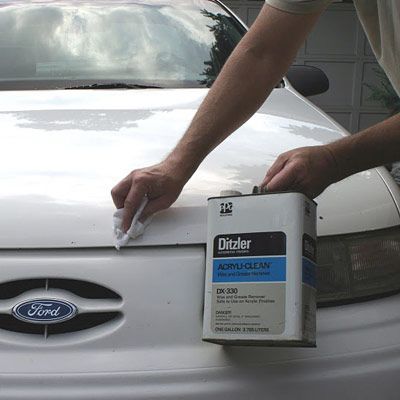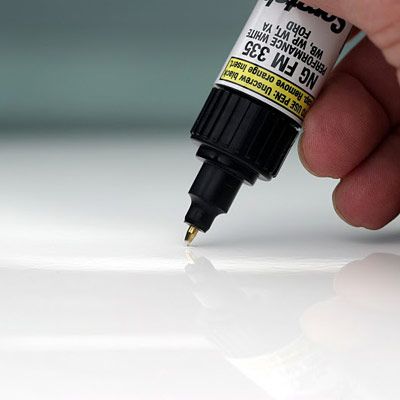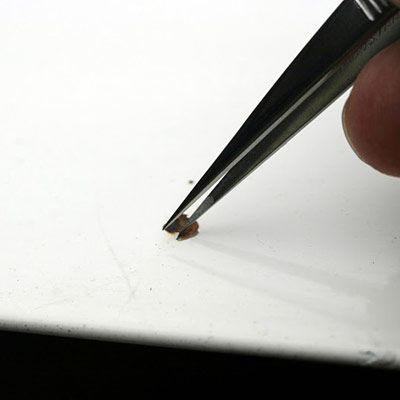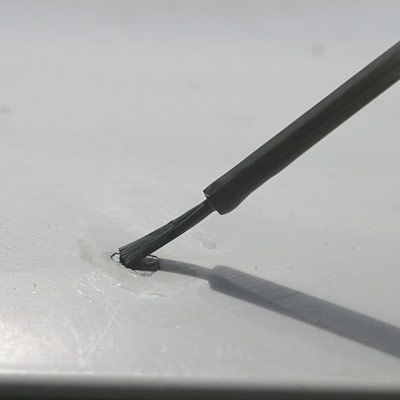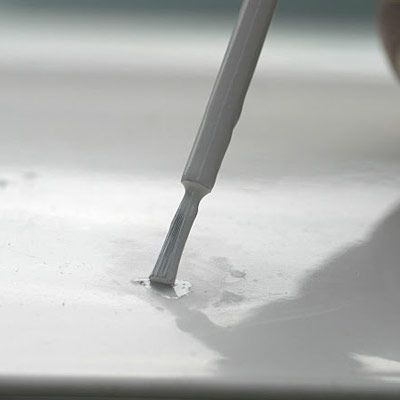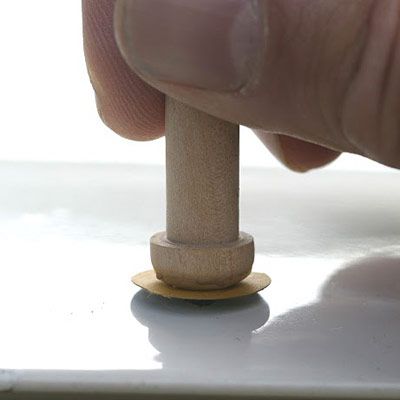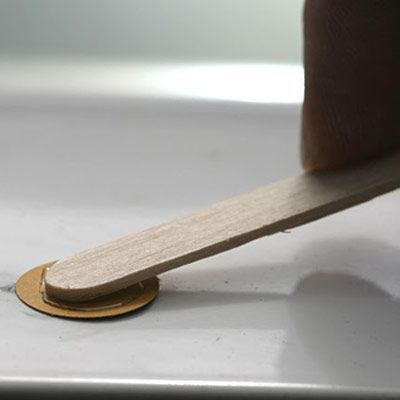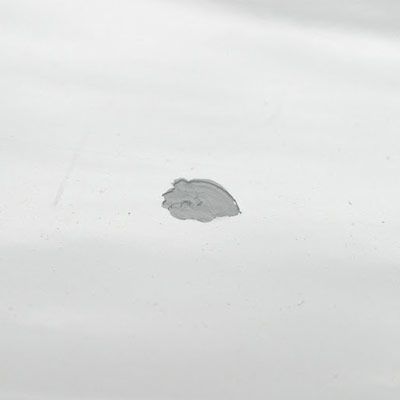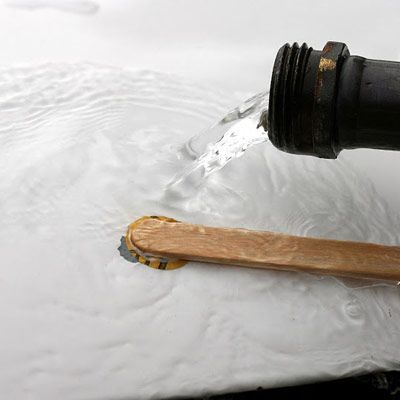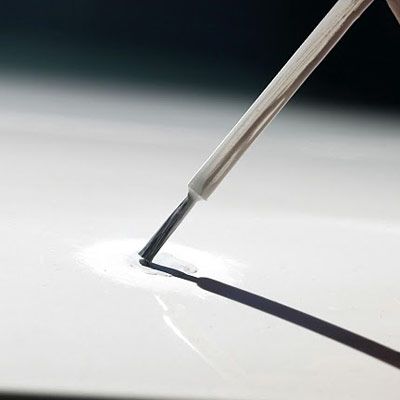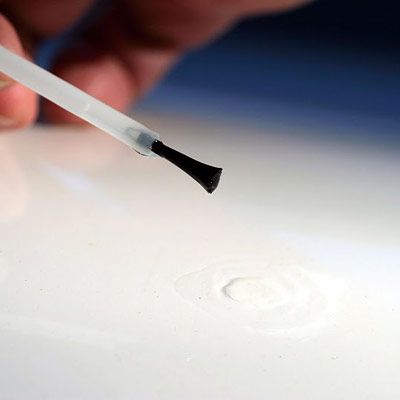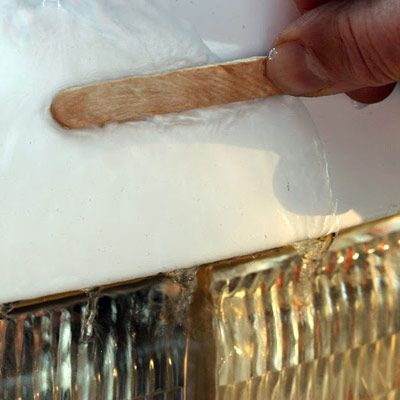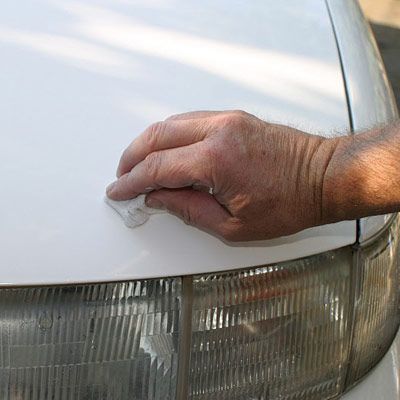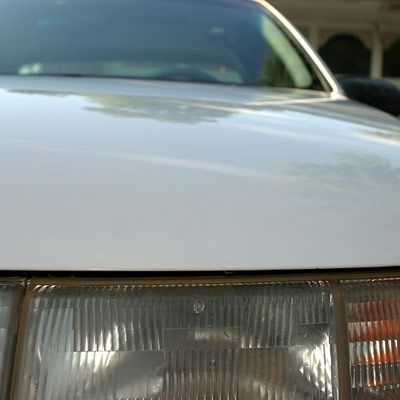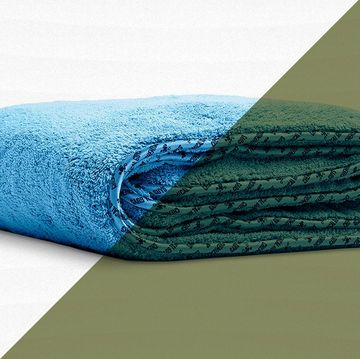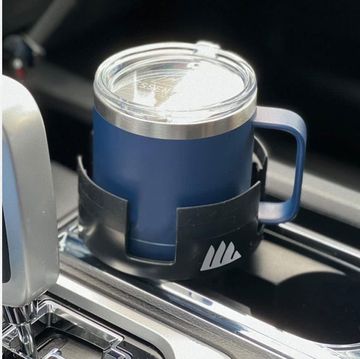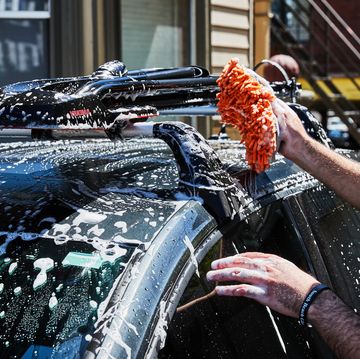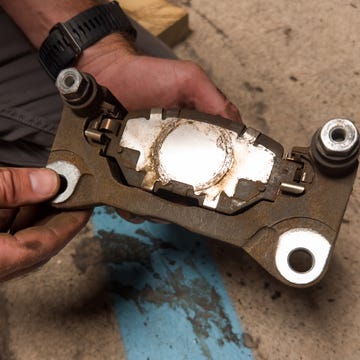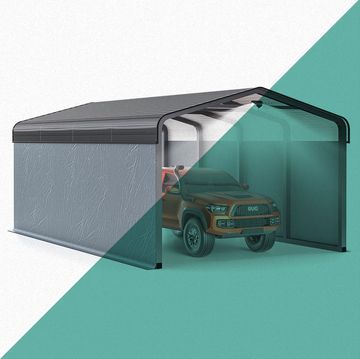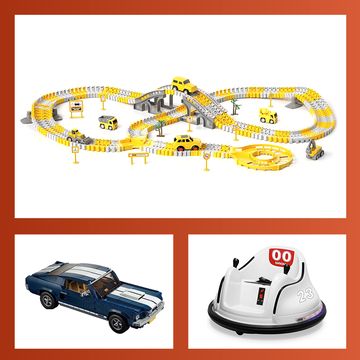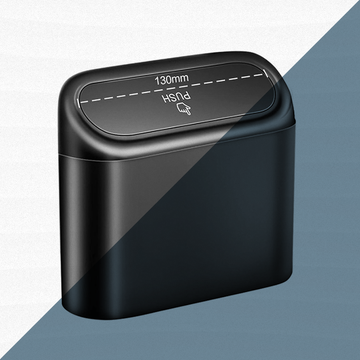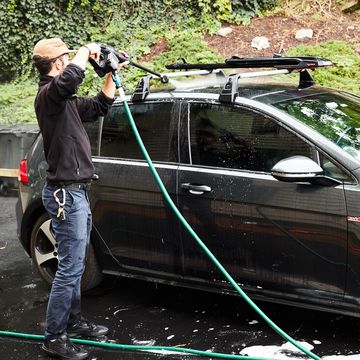Chips in your car’s paint aren’t just an eyesore. They can also expose your car’s metal to further corrosion. You may not be able to make your car’s finish look showroom fresh, but with a reasonable level of competence, you can make your car look much better and prevent further rust formation without an expensive trip to the body shop. Here’s how.
Step 1: Touch Up Kits
Duplicolor has simple paint touch-up kits that you can buy at your local auto parts store, and many dealerships can sell you a paint pen in your car’s exact factory color. You can also buy more involved touch-up kits and supplies online. For example, the kit we tested from PaintScratch came with primer, clearcoat, paint thinner, a bottle of rubbing compound, and color-matched paint.
PaintScratch used information in the car’s Vehicle Identification Number—the long combo of letters and numbers commonly referred to as a VIN—to verify the right shade of paint, which is a pretty common practice. These kits are more expensive and have more steps, but ultimately provide a better, longer lasting result.
Step 2: Check the Door
You need to identify the paint code for your vehicle to ensure you are getting the correct shade of paint, which is easy to find if your car has never been repainted a different color. On most cars built since 1983, this information may be found on a sticker on your driver’s door or door jamb. To be absolutely sure of a match, the paint vendor may also need the VIN, which can be found on that same door sticker or on the VIN plate on your dash.
If your car has been repainted a different color in its lifetime, you’ll obviously need to find that color instead. Hopefully that color is listed somewhere in the records for the car, but if not, you’ll likely want to shop for paint in person to make sure you’re getting a good match.
Step 3: Go Shopping
Preparation is the key to getting good results. You’ll need very fine 1000-grit, 3M Wetordry sandpaper, various craft sticks, cotton swabs, thin-tip splinter tweezers, glue dots, and various paper punches. Everything except the tweezers came from a local craft store.
Step 4: Making Your Sanders
Most off-the-shelf sanding tools would damage a lot of perfectly fine paint around the chip, so we’ll need to make our own miniature sanders. Use the punches to cut out small sandpaper circles and glue them to the craft sticks and dowels. Don’t be afraid to think outside the box at the craft store, either. We found a $1.99 bag of wooden axles with nice rounded ends that worked well on larger chips.
Step 5: Wash the Car
First, wash the car with warm soapy water, rinse thoroughly, and let it dry. You want to be sure the car is completely free of dirt in order to get a smooth repair.
Step 6: Remove Built Up Waxes and Coatings
Next, remove any wax, grease, and silicone that would prevent fresh paint from adhering to the surface of your car. PPG Acryli-Clean is one such solvent that’s safe for this, and can be found at professional body shop stores and some larger auto parts stores.
Step 7: Fill Small Chips
For very small chips, we recommend using a paint pen. The small tip on the Duplicolor paint pen was easy to control and made filling the divot easy. Apply enough paint that it rises barely above the surface. This allows for shrinkage during drying, and any slight excess can be wet sanded down and then rubbed smooth.
Most stone chips are probably on your hood’s leading edge. To prevent the paint from running before it dries, you can lift the hood until the chip is horizontal to the ground to keep the paint in its place even while wet.
If these are the only chips your car has, you’re lucky! Otherwise, read on.
Step 8: Clean Up Medium Chips
If your remaining chips are larger, skip ahead to Step 11. For medium size chips, we’ll need to use the brush applicator. Before your start brushing on anything, clean out any loose debris and paint from inside the chip with your tweezers.
Step 9: Apply the Primer
Apply the primer with the applicator brush as directed. It’s important to read and follow the instructions, as these can vary between paint vendors. Pay close attention to how long it will take for the paint to dry for each layer, be it primer, paint, or clearcoat. Working over wet paint could leave rough spots, bubbles or holes in the finish, which wouldn’t do as much to protect or enhance the appearance of your car.
Step 10: Apply the Paint
After the primer cures, apply the paint. At this point, the filled chip on our test car didn’t look too bad from six feet away. Wet sanding, applying the clearcoat, wet sanding again, and then rubbing the chip smooth improved the look of the repair considerably. After that, the repair looked great from about three feet away, depending on your eyesight and the amount of sunlight. You'll have to decide how much work you want to invest here.
Step 11: Clean Up Large Chips
The rest of these steps are for fixing large paint chips, which are the ones most likely to expose the car’s bare metal to the elements and lead to further damage. On larger chips and those that already have a rust colony growing, use the splinter tweezers or a fine dental pick to flake off any loose paint.
You must be very careful because you can easily turn a small chip into a large one if you loosen up any paint that isn’t loose already. However, if you don't remove the loose paint, the paint will eventually flake off on its own and spoil the repair.
Step 12: Remove Rust
Swab CLR, Ultra One’s Safest Rust Remover, or an equivalent rust remover into the chip to dissolve and remove rust. Keep doing this until your swab comes up clean. Next, rinse the rust remover out of the chip with isopropyl alcohol. If you don’t remove all the rust, the paint won’t properly adhere to the car and rust will spread under the paint.
Step 13: Sand the Edges
Carefully dry-sand the edges of the chip until they look smoother and more rounded off. You don’t want any sharp edges that will make the repair look more obvious. The curved shape of the wooden axle end made it the ideal tool for this. Water will restart the rust process, so do this sanding dry. The 3M Wetordry sandpaper clogs quickly when used for dry sanding, but the adhesive dots make changing sanding circles easy.
Step 14: Apply Leverage
Now is the time to whip out a flat craft stick to use with a small circle of sandpaper. Using the edge of the flat wood sanding stick will apply more leverage when sanding the chip and the area around it, but don’t sand too far outward or you’ll sand through the clearcoat and make the spot more noticeable.
You want to taper the edges of the chip so the boundaries of your repair are less noticeable. Make sure you wipe or blow off the remnants of your sanding job before moving on to the next steps.
Step 15: Apply the Primer
Carefully apply the primer from the center outward. You don’t want to go beyond the edge of the chip. If you do, use a cotton swab moistened with lacquer thinner to quickly wipe up the excess primer. Keep all of your painting supplies close at hand on a small table. You don’t want to have to go searching and fumbling after a mistake as the paint doesn’t stay liquid for long.
Step 16: Let the Primer Dry
Let the primer dry to full cure, which could take a while depending on temperature and humidity. Be sure to follow the directions that came with your paint or repair kit, as they can advise you on the number of coats you’ll need for primer, paint, and clearcoat as well as the amount of time each layer needs to dry. Budget enough time to let the primer completely dry before covering it with paint.
Step 17: Wet Sanding
Once the primer dries, you can wet sand it to prepare the primer base for paint. Once again, don't sand too far from the center of the chip or you will sand through the surrounding clearcoat. Sanding through the clearcoat is especially noticeable if your car has dark or metallic paint.
We recommend using a stronger, water resistant adhesive for these wet sanding sticks. It’s non- removable, but you won’t need to change sandpaper as often when wet sanding. We pre-made three sticks with sand paper circles on each end for a total of six wet sanders.
Step 18: Steady Hands
Painting a chip this large with a brush will never give you a factory finish, but you can at least seal the metal back up and make it look nice from further away. Steady hands and a small amount of paint on the brush worked best. Take it from your local manicurist: Thin, smooth coats are best when working with multiple layers.
Double- and triple-check that your primer is dry before you start this. While testing the PaintScratch kit, we made the mistake of painting too soon after a second coat of primer. The solvent in the paint began to dissolve the primer and thin swirls of gray mixed into the white.
Step 19: Add Clearcoat
Keep wet sanding the painted spot until it is smooth. Next, brush on the supplied clearcoat. Like the paint, clearcoat is lacquer based, thin, and it dries fast.
In this picture, you can see the boundary between the new lacquer and the original enamel. That happens when the edges of your repair aren’t sanded down enough to taper into the chip. Be careful with your preparation work, and get the chip as smooth as possible before you move on to the next step. If you’re happy with how your repair looks, though, you can skip ahead to Step 21.
Step 20: Repair Your Repairs
If your repair didn’t turn out well the first time, don’t fret—there are ways to salvage it. After your previous attempt dries, sand the spot back down to the primer with a 360-grit 3M Wetordry sandpaper. This time, it’s imperative to stay within the repair zone, so you probably want to trim your sandpaper circle to sit even with the radius of your stick. Wipe off any extra dust or moisture, then repaint the spot. Wet sand the spot with 1000-grit sandpaper once the paint is completely dry. Add your clearcoat, and then wet sand again. This tedious process slowly built up new layers of paint to sit even with the original surface.
Step 21: Use Rubbing Compound
Once the repair is flush with the rest of the paint, take some rubbing compound and polish the area with a clean cotton cloth. Wash the area with soapy water to clean off all the rubbing compound, rinse thoroughly, and let it dry. Let the repair continue to cure for about a week before waxing your car.
Step 22: All Done
All done! Here is the same area where the large chip was, without any photoshopping. It won’t fool a concours judge, but it is a big improvement.
Of the products we tested, the Duplicolor paint pen was the easiest to use on small chips. The color didn't match as well as the VIN-matched paint but it was a bargain at around $10. The $75.65 kit from PaintScratch was better for larger chips but required a tremendous amount of sweat equity and extra materials, plus the learning curve was steep. It cost Paul about $150 in materials and about 20 hours of work to get his paint chips fixed at home, compared to a quote of about $300 to have his hood repainted.
Unless time is of the essence, simple paint chip repair is an easy enough task to try yourself. Take care of chips as soon as you can! You’re not just saving money on a full repaint, but on future repairs. Your paint is your car’s first line of defense from the elements, after all. Treat it as such.
Stef Schrader routinely breaks and attempts to take project cars on race tracks. She enjoys fancy cheeses, good coffee, fast Porsches, traveling to new places and rare, weird cars. She lives with a large collection of Fisher-Price Puffalumps and an overloaded parts shed.
